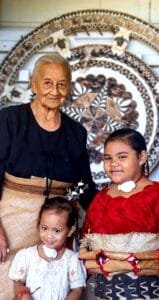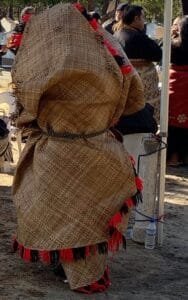Tongan social norms are deeply rooted in cultural values and traditions that shape the behavior and interactions of individuals within the community. These norms reflect the collective identity and heritage of the Tongan people, emphasizing respect, cooperation, and humility.
These norms, deeply rooted in tradition, shape the daily lives of Tongans and contribute to the country’s unique identity.
Influence of Christianity

Christianity plays a significant role in shaping Tongan social norms. Many customs align with Christian teachings, such as modesty in dress and behavior during church services. The integration of Christian values into daily life has reinforced existing norms while also introducing new practices.
Importance of Family:

The family is the cornerstone of Tongan society. Extended family, known as “kainga,” play a crucial role in daily life. These include not just immediate relatives but also people like your grandparent’s siblings children and their children, providing emotional and financial support. Traditionally, the extended family unit is important, with children being raised by all the adults rather than solely belonging to their parents. This communal approach fosters a strong sense of belonging and responsibility among family members.
Events like weddings, funerals, and family reunions are opportunities to strengthen connections and uphold traditions.
In familial hierarchies, women often hold high social prestige, a sister is considered higher in the household than her brothers. If her brothers have children, the eldest sister is their Fahu – the brothers children must always treat their fahu with honor and respect. At the children’s birthday or any ceremony, their fahu will be the guest of honor and she will be presented with gifts as a show of appreciation and love from the children.
Respect for Elders:
One of the most fundamental Tongan social norms is respect for elders. This reverence extends to all older individuals, regardless of their familial relationship. It is customary to greet the elders first.
It is traditional that families look after their aging family members, however this is changing a bit. It is important to know that residential care is usually a last resort not just for Tongans but also for Pacific Island families everywhere.
Humility and Modesty:
Humility and modesty are highly valued qualities in Tongan culture. It is considered inappropriate to boast or show off. Instead, Tongans often downplay their achievements and emphasize the importance of collective effort.
Household
When serving drinks and food to house guests, it’s always appropriate for women to cover their legs with a tupenu or long skirt because you may need to walk past elders and men (this is called faka’apa’apa or respect).
Politeness and Etiquette:
Politeness and proper etiquette are essential in Tongan interactions. Greetings are often accompanied by a gentle handshake or a cheek-to-cheek greeting.
It is also customary to remove one’s shoes before entering a home.
Gift-Giving:
Gift-giving is a common practice in Tonga. It is customary to bring a gift when visiting someone’s home or attending a special occasion. Gifts are often seen as a gesture of respect and appreciation. At gatherings you will see the exchange and gifting of beautifully handmade fine mats and ngatu (tapa cloth) as well as food or money. If you are fortunate to be gifted a ngatu or fine mat, it is for you to keep or hold until you can gift it to someone else.
Formal events and Semi-formal occasions
Traditional Tongan attire is modest and conservative. For women, a puletaha (matching tunic and skirt) and a kiekie (ornamental girdle worn around the waist for occasions). For men, a tupenu (cloth wrap skirt) or pants, and button-up shirt. It is common to wear this attire to s church, opening ceremonies and meetings. The ta’ovala is a traditional woven mat wrapped around the waist worn by men and women over their tupenu or puletaha at all formal occasions. It is usually made from pandanus leaves, hibiscus bast fibre or plastic, and tied with the kafa, a braided rope worn like a belt.
Funerals

If attending a Tongan funeral, it is customary for men and women to wear conservative black clothing as a sign of mourning, and a ta’ovala as a sign of respect. If you don’t have one, a long skirt for women or black tupenu (long black pants for men) is fine. The type of ta’ovala worn can also signify the relationship to the deceased. For example if you see a ta’ovala worn all the way up and over the head, that person is a close relative ie. liongi(s) or children of the fa’e tangata or mother’s brothers.
Expect a Tongan funeral to last for several days and include feasts and large family gathering and a hair cutting ceremony at the end. It is acceptable for people to cry and wail at the funeral, Tongans will want their deceased family member at the house while the funeral is ongoing and up until it is time for burial. Partners and children are expected to wear black for a period of one year to show respect to the deceased.
Cultural performances
Cultural performances are done at birthdays, family reunions and weddings.
It often involves family and friends placing dollar notes on performers this is called a Fakapale. It’s useful to have some monetary notes so you can participate as well.
Kava Ceremony

Kava circles or faikava take place in homes and village clubs most weekends. This is where men, young and old, congregate to partake in the drink but more importantly to socialise and talk with each other.
If you are male and invited to take part, then it’s important you greet everyone by starting with the person at the top of the circle (opposite the kava bowl). Shake hands with the individual and continue greeting those on the right hand side. Return to the top of the circle and repeat the greetings down the left hand side. Greet the person serving the kava last. This is done as sign of respect and to be welcomed into the circle to share in talanoa.
Social Interactions within Tongan Society
Respect for hierarchy influences how individuals interact; for example, maintaining a lower posture when speaking to someone of higher rank is common such as when addressing royal family members, nobles, elders of the family and even pastors of a church.
Expressions of affection are typically reserved for same-sex interactions; public displays of romantic affection are generally frowned upon. This cultural norm underscores the importance of maintaining boundaries in social interactions.
Tonga Time:
Tongans generally have a more relaxed approach to time compared to Western cultures. Punctuality is important, but it is often not as strictly adhered to as in other societies. Patience and understanding are valued traits in Tongan social interactions.
Overall, Tongan social norms are a mix of historical traditions, core values, and religious influences. Understanding these norms is essential for anyone wishing to engage meaningfully with Tongan culture, whether in personal relationships or broader community interactions.
Want to learn more about Tonga? Stay with Hotel Nukualofa and you will find out. Our friendly local staff can help you with anything Tonga related. Reserve your room now and let us guide you about the Tongan ways.
